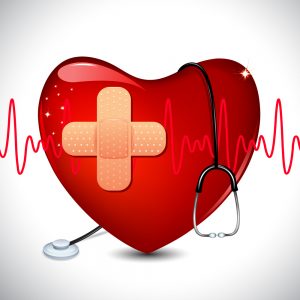 It never ceases to surprise me how little I actually understand about our bodies, especially the heart. Take heart disease in seniors, for example.
It never ceases to surprise me how little I actually understand about our bodies, especially the heart. Take heart disease in seniors, for example.
I should be somewhat of an expert now, because my husband Rob had a major heart attack 15 years ago, and for the most part, he’s been recovering nicely (after five stents were put in place for blocked arteries).
He’s continued to be active and engages in tennis and regular gym workouts. And I continue to enjoy his company on the courts and outdoors. It’s a win-win. But he still has heart disease, and that’s not going away or get better.
Congestive Heart Failure
Every once in a while…he gets hospitalized with symptoms of congestive heart failure. The doctors and nurses just call it “CHF,” which sounds much more friendly and not so fatal.
This is the fourth time he’s been treated for CHF symptoms which for him include tightness in the chest, shortness of breath, extreme fatigue, coughing, and swelling and retention of water. He’s unable to sleep because when lying down, blood pools in his chest instead of circulating and he can’t breathe. His damaged heart is too weak to pump sufficiently to circulate the blood and oxygen to his organs, thus causing swelling in legs and lungs.
Treatment for Heart Disease
As before, this time his treatment consisted of Lasix (or other diuretic medicines) which gets stuff flowing again. Once in Mexico, they administered an IV infusion of a drug that was like a miracle cure. He bounced back after that and had no more symptoms for the next four years. Unfortunately, this time we learned the drug (Simdax) isn’t available in the US, although it is approved in 60 other countries.
One of the other options for this condition is an implant. He already has one, an implanted defibrillator/pacemaker to take care of faulty beats when they occur. At 79, he is too old to be a candidate for a heart transplant. And artificial hearts are not yet perfected.
Rob is lucky because after a couple of days of hospitalization and medications (and lots of peeing!) his symptoms subside and he can sleep, breath, walk, run, jump and play. He becomes symptom-free. Not everyone’s so lucky.
Heart Disease and Luck?
Did I say “lucky?” I did, but that’s not it. As Lori, his wonderful nurse at Abrazo Arrowhead Hospital, told us. “If you weren’t in such good shape with exercise, good diet, no smoking or alcohol, you wouldn’t be alive.”
It used to be that doctors cautioned people with heart disease to take it easy and not exert themselves. That advice has changed and now seniors of all ages are encouraged to play sports and exercise. Of course, any senior knows that means to exercise within your abilities.
Heart Disease Recovery: Rules of the Road
Diet is as important as exercise for seniors with heart disease. In fact, it’s important for everyone, although experts seem to dispute what is the ideal diet. We could benefit by reducing portions, avoiding snacking and processed foods, eating more of the good stuff (veggies and fruit) and less of the bad stuff (refined carbohydrates, sugar, vegetable oils, and probably most saturated fats).
It goes without saying that seniors with heart disease should not smoke anything, nor should they drink alcohol routinely unless they are truly able to restrict themselves to a small glass of wine. I find most drinkers don’t moderate their drinking very well.
Adequate sleep is important to give all of your organs time to repair. I have recently been practicing eight hours of sleep, and have really noticed the huge different in my energy and moods. Everything’s so much easier when I’m rested. I take 9-10 mg of Melatonin to help keep me asleep because it’s a natural substance and doesn’t give me any hangover. But everyone’s different, find what works for you but don’t skimp on sleep.
Do You Know Your Own Body?
Researching my husband’s symptoms has been enlightening, but I also realized I didn’t really understand the different kinds of heart disease in seniors, the various treatments nor the best ways to prevent heart disease. I myself take heart medications, but for an entirely different type of heart dysfunction, atrial fibrillation. More about that in another post.
I’ve recently discovered one of my favorite writers, Bill Bryson, has written a new book: The Body: A Guide for Occupants. I highly recommend you read it for it’s everyday explanations on how the body works. I have furnished you an affiliate link, just so you know, but I would recommend it anyway.
In the next few weeks, I will share what I’m learning, not just about heart disease for seniors, but about all the mysterious ways our organs work, and then don’t work as we age. Stay tuned.

Recent Comments